Supporting Outstanding Academic Research (SOAR) Award & Symposium
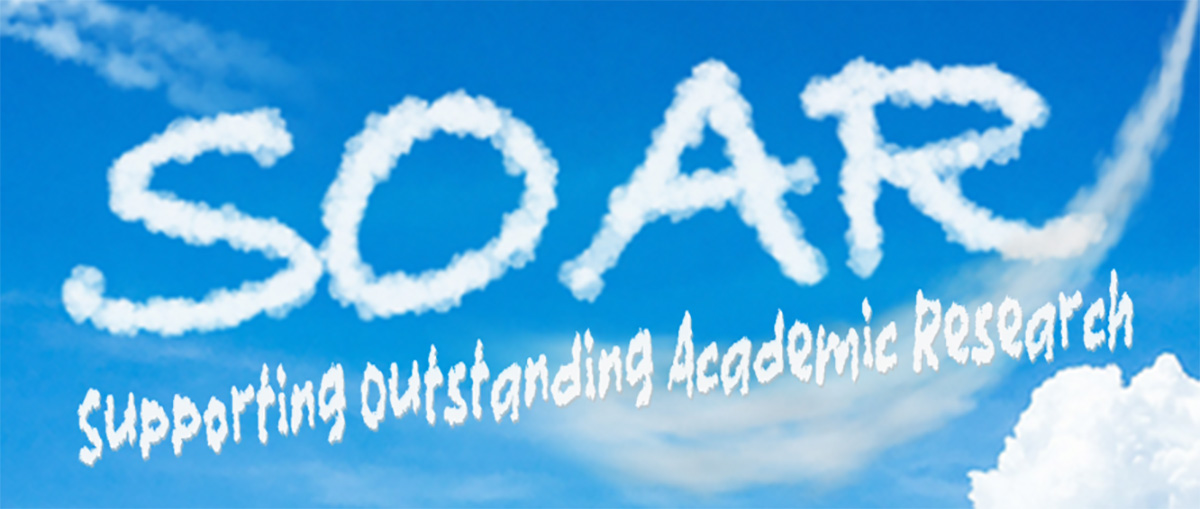
SOAR Award Symposium
The SOAR Award Symposium recognizes outstanding young scholars with research interests that are underrepresented in behavioral and brain sciences and/or research perspectives that come from an understanding of the experiences of historically underrepresented or underserved populations. Examples include but are not limited to, researching understudied populations, using community-based research, research addressing a social problem, research on interventions to reduce inequality, and research into the physiological mechanisms underlying neurological and other disorders that disproportionately impact historically disadvantaged groups.
Event Date: October 25, 2024
See the Schedule of Events
See the SOAR Fall 2024 Awardee & Honorable Mentions
SOAR Award
Eligibility: The Soar Award is given to Outstanding Post-Doctoral Researchers and Graduating PhD Students in psychology, neuroscience, speech, language, hearing sciences, or related fields.
Award: The Awardee (one per year) will receive a $1,000 award. Honorable Mentions, if any, will each receive a $500 award. All will deliver an invited lecture at The University of Texas at Dallas on the topic of their research. Travel and lodging will be provided.
Schedule
Location:
Callier Annex, CRA 12.110
| 8:00-9:00am | Breakfast |
| 9:00am | Introductions |
| 9:15-10:45am | Topic Area Honorable Mention Symposium Neuroscience, Honorable Mention Title: Determination of the Role of Ventral Tegmental Area Neuromedin-S Expression and Cellular Activity in Morphine Behavior Cristina Marie Rivera Quiles, Doctoral Candidate, Michigan State University Speech, Language, and Hearing, Honorable Mention Title: Measuring Heritage Language Development in Arabic-English Multilingual Children: The Roles of Home Literacy and Family-Based Routines in Responsive Assessment Samantha Ghali, PhD Post-doctoral fellow, Medical University of South Carolina Psychology, Honorable Mention Title: Cultural Pathways in Mexican-Origin Children’s Oral Language Development in Early Childhood Gladys Aguilar, PhD Post-doctoral fellow at Stanford University |
| 10:45-11:00am | Coffee Break |
| 11:00am-12:00pm | Keynote Speech SOAR Awardee Title: Sources of Individual Differences in Typical and Atypical Development of Language and Literacy Abilities in Bilingual Children Juliana Ronderos, PhD Postdoctoral Fellow Department of Speech, Language & Hearing Sciences, Boston University |
SOAR Fall 2024 Awardee & Honorable Mentions

Juliana Ronderos, PhD
SOAR Award Recipient
Juliana Ronderos, PhD is a postdoctoral fellow in the Communication and Neurodevelopment Lab in the Department of Speech, Language, and Hearing Science at Boston University. She earned her PhD from the Integrative Program in Developmental, Cognitive, and Behavioral Neuroscience at the University of Houston. Her research interests lie in the intersection of the neurological bases of typical and atypical language and literacy development and bilingualism. Dr. Ronderos is interested in effective identification and assessment of children with language-based learning disorders, such as developmental language disorder and dyslexia, and the environmental and neurocognitive factors impacting language and literacy development, particularly in children from culturally and linguistically diverse backgrounds.

Christina Marie Rivera Quiles, Doctoral Candidate
SOAR Award Honorable Mention in Neuroscience
Cristina is a Neuroscience PhD candidate at Michigan State University. Her research in the Mazei-Robison laboratory has focused on characterizing a novel population of neuropeptide-expressing cells in the ventral tegmental area of mice in the context of opioid behaviors. She has received the NSF GRFP and the HHMI Gilliam Fellowship to assist with her thesis research.

Samantha Ghali, PhD
SOAR Award Honorable Mention in Speech, Language and Hearing
Samantha Ghali, PhD, CCC-SLP, is a T32 postdoctoral fellow at the Medical University of South Carolina in the department of Rehabilitation Sciences under the mentorship of Dr. Sabrina Horvath. Dr. Ghali is also a postdoctoral research affiliate at the University of Kansas under the mentorship of Dr. John Colombo, where she obtained her PhD in Child Language in 2024. Dr. Ghali’s programmatic research focuses on responsive measurement of multilingual children’s morphosyntactic and lexical skills at the interface of multiglossia and literacy. Specifically, Dr. Ghali partners with local communities to develop language assessments to address over- and under-identification of language disorders in Arabic-English speaking families, who are among the fastest growing language communities in the United States. Currently, Dr. Ghali investigates lexical processing in multilingual children with and without language disorders via eye tracking. Dr. Ghali’s long term research goals include the development of reliable tools for early assessment of language disorders. Dr. Ghali also serves on the Missouri Department of Elementary and Secondary Education’s (Office of Early Childhood) Provider Partnership Cohort, composed of stakeholders across Missouri’s flagship early intervention program, Missouri First Steps.

Gladys Aguilar, PhD
SOAR Award Honorable Mention in Psychology
Gladys Aguilar is an Institute of Education Sciences Equity in Early Childhood Postdoctoral Research Fellow at Stanford’s Graduate School of Education and Center on Early Childhood. She is a developmental scholar trained in mixed methods and grounded in critical approaches to the study of child development. She applies sociocultural and resilience frameworks to examine the factors influencing the psychosocial well-being and educational success of ethnoracially and linguistically minoritized children, particularly Latine children in immigrant families. Her interdisciplinary research explores bilingualism and ethnic-racial identity as promotive factors in the learning and development of Latine and other children from racialized communities in the U.S. and abroad, focusing on these competencies in home and school settings. Drawing on her professional background and her personal experiences as an immigrant from Mexico growing up in the U.S., her work seeks to inform equity-focused policy, research, and practice that highlight Latine children’s positive development and elevate immigrant families’ cultural assets. Outside of collaborative research, Gladys enjoys sharing meals with family and friends, dancing, traveling, and playing bilingual Scrabble.
SOAR Fall 2023 Awardees
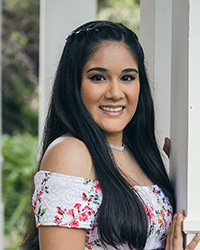
Vanessa Rosales Cerda, PhD
SOAR Award Recipient
Vanessa Rosales Cerda received her PhD in neuroscience from The University of Texas at San Antonio and is currently a Postdoctoral Scholar in the Brain Development Lab at Vanderbilt University. Her research program incorporates both ERPs and fMRI to understand the neural basis of arithmetic processing in Spanish-English bilingual children and adults. Specifically, she is interested in understanding the relations between the complex dynamics of a bilingual’s language background and how arithmetic is processed across languages. Her long-term research goal is to become a leader in the area of bilingual STEM cognition, spearheading advancements in bilingual education and neurocognitive development. Outside of the lab, she is passionate about participating in community outreach events where she has the opportunity to expose young women and minorities to STEM. She is currently a member of Vanderbilt’s Postdoctoral Executive Board as the Chair for Postdoctoral Advocacy and Diversity, Equity, and Inclusion.
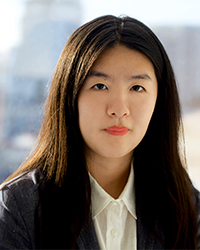
Rongxiang Tang, PhD
SOAR Award Honorable Mention in Neuroscience
Rongxiang Tang, PhD is a postdoctoral scholar in the Department of Psychiatry and Center for Behavior Genetics of Aging at the University of California San Diego School of Medicine. She received her PhD in psychological & brain sciences from Washington University in St. Louis in 2021. Leveraging multimodal neuroimaging and computational neuroscience techniques, Dr. Tang’s research broadly focuses on neural mechanisms of cognitive function, both in terms of individual differences and changes across the lifespan. Currently, Dr. Tang investigates how socioeconomic status and early life disadvantages contribute to individual differences in cognitive and brain aging, as well as risk for Alzheimer’s disease.
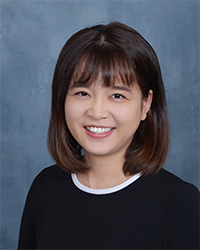
Danyang Wang, PhD
SOAR Award Honorable Mention in Speech, Language, and Hearing
Danyang Wang is a postdoctoral scholar at the University of California-Irvine, specializing in child language development and disorders. She received a PhD in communication sciences and disorders from the University of Delaware. Dr. Wang’s research is centered around bilingual language development, language assessment, and the manifestation of developmental language disorder in children from culturally and linguistically diverse backgrounds.
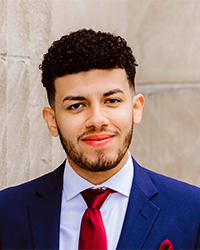
Josiah Rosario, Doctoral Candidate
SOAR Award Honorable Mention in Psychology
Josiah Rosario is a PhD candidate in social psychology at Northwestern University and a 2023 National Academies of Education/Spencer Dissertation Fellow. Josiah is a member of the Development of Identities in Cultural Environments (DICE) lab and the Destin lab, where he focuses on attending to the psychological realities that shape minoritized young people’s development and educational outcomes. As an interdisciplinary scholar, Josiah integrates social psychological, developmental, and educational perspectives to answer broad questions about how macro contexts shape micro-level psychological processes. He pursues these questions through experiments, mixed methods, and qualitative methods.
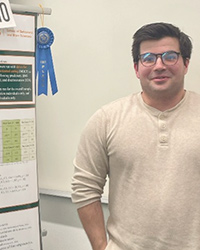
Donald Christopher Garcia MacPhail, Psychology Doctoral Student
SOAR UTD Student Poster Awardee
Acculturative Stress, Discrimination, and Muscularity Outcomes: Gender and Generational Differences
Co-Authors: Mia Koch, Melissa Heinrich & Dr. Shayla Holub
SOAR Spring 2023 Awardees
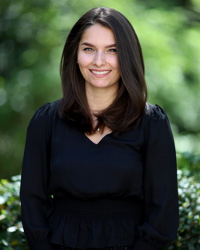
Ceci Hinojosa, PhD
SOAR Award Recipient
Cici Hinojosa, PhD is a postdoctoral fellow at Emory University School of Medicine under the mentorship of Dr. Jennifer Stevens and Dr. Sanne van Rooij. Dr. Hinojosa completed her BA in psychology at The University of Texas at El Paso in 2016 and her PhD in experimental psychology at Tufts University in 2021. At Tufts, Dr. Hinojosa focused on determining whether pre-treatment brain activation can predict treatment response to prolonged exposure therapy in individuals with posttraumatic stress disorder (PTSD). Currently, her research focuses on better understanding the neurocircuitry of PTSD using neuroimaging techniques and the role substance use may have in the development and maintenance of the disorder.
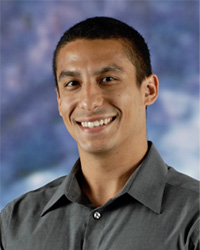
Johnathan Borland, PhD
SOAR Award Honorable Mention in Neuroscience
Johnathan Borland, PhD is a Postdoctoral Fellow in the labs of Dr. Robert Meisel and Dr. Paul Mermelstein at the University of Minnesota School of Medicine. He graduated from Emory University with a BS in chemistry and a BA in psychology in 2009. Dr. Borland entered the graduate program at the Neuroscience Institute of Georgia State University in the fall of 2013 and studied in the lab of Dr. Elliott Albers. His dissertation research investigated sex differences in how social reward is mediated by oxytocin within the ventral tegmental area. Dr. Borland’s current research investigates the molecular and synaptic mechanisms regulating the rewarding properties of dominance status and sex behavior.
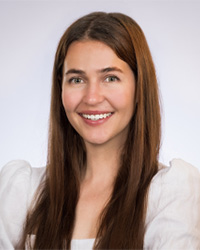
Jordan Wylie, PhD
SOAR Award Honorable Mention in Psychology
Jordan Wylie, PhD is a postdoctoral researcher at Boston College. She received her PhD in psychology with a concentration in quantitative methods from The Graduate School, CUNY in 2022. Dr. Wylie’s research broadly investigates how morality shapes how we see, reason, and make judgments about our worlds. Specifically, she investigates how moral rules and norms influence judgments about rule breakers and the kinds of moral minds we are curious to learn more about. Dr. Wylie is also affiliated with the Center for the Science of Moral Understanding and is a Research Fellow at More in Common where her work focuses on the intersection of morality and politics.
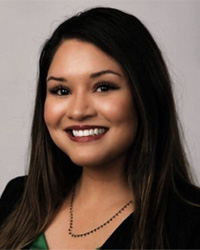
Genesis D. Arzmendi, PhD, CCC-SLP
SOAR Award Honorable Mention in Speech, Language, and Hearing
Genesis D. Arizmendi, PhD, CCC-SLP is a Provost Early Career Fellow at The University of Texas at Austin, with appointments in Special Education and the Texas Center for Equity Promotion. She is a certified and licensed bilingual speech-language pathologist who has served students and patients across the Southwestern United States. As an interdisciplinary scholar, Dr. Arizmendi’s research focuses on remediating educational and health inequities in Spanish-English learning children by investigating the intersection of cognition, language, academics, and culture.
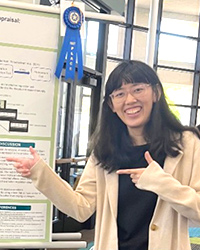
Yue Li, Psychology Doctoral Student
SOAR UTD Student Poster Award
Immediate and sustained effects of expressive suppression and reappraisal: A cultural neuroscience approach.
Co-Author: Dr. Jiyoung Park
About the UT Dallas School of Behavioral and Brain Sciences
The School of Behavioral and Brain Sciences brings together innovative research, student training, and community outreach in a climate that fosters collaboration and learning. The school’s mission is to study the biology and psychology of thought and language, development and aging, pain, social interaction, and perception in both healthy adults and children, and in illness and atypical development. Through this work, we aim to enhance the health, education and quality of life of adults and children, their families and their communities. This is accomplished with fundamental investigation of brain and behavior and applied research in remediation and compensation, including the use of advanced technology.
UT Dallas welcomes individuals from all backgrounds and identities at our institution.
For more information see https://institutional-initiatives.utdallas.edu/.






